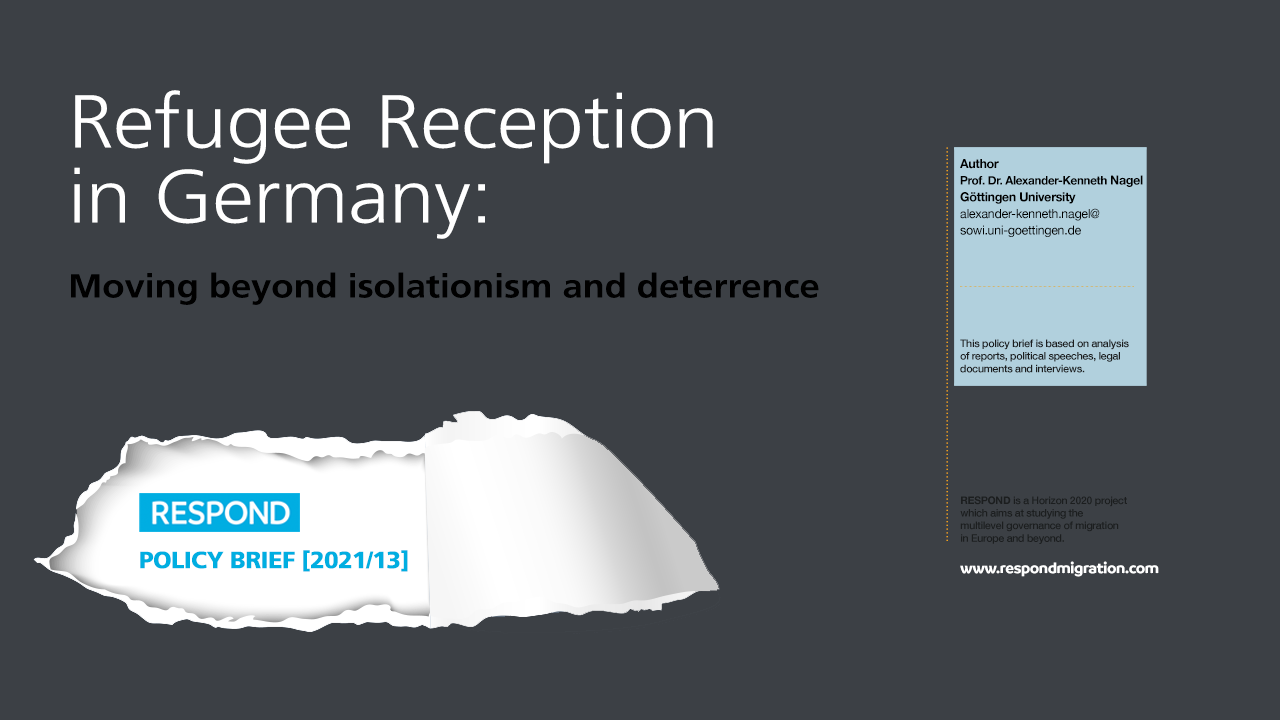Refugee Reception in Germany: Moving beyond isolationism and deterrence
RESPOND Policy Brief [2021/13]
Authors: Alexander-Kenneth Nagel - Göttingen University
EXECUTIVE SUMMARY
This policy brief focuses on reception policies, practices and humanitarian responses to refugee immigration in Germany between 2011 and 2017. Despite efforts to achieve harmonization (especially promoted by the 2016 CEAS and by the ENP), relevant differences exist in this field across EU member states. The European Union (Directive 2013/33/EU) has defined a number of “material conditions” of reception including “housing, food and clothing provided in kind, or as financial allowances or in vouchers, or a combination of the three, and a daily expenses allowance” (Art. 2 (g)). The directive also touches upon matters of education (Art. 14) and basic health care, which ought to be provided during the period of reception and formulates criteria for proper accommodation (e.g. an adequate standard of living, protecting vulnerable populations, qualified staff, see Art. 18).
In the course of the migration process, reception refers to the liminal period between the arrival and application for asylum and the decision about the asylum application. As a matter of fact, experiences of reception can either be protracted (e.g. due to the prolongation of the asylum process) or iterative (e.g. if refugees have been subject to reception measures in other countries in previous stages of their journey). This policy brief will concentrate on measures and experiences of reception in the respective country of arrival and only elaborate on instances of reception in other countries as far as they have an impact on measures and experiences of reception in the country of arrival. For instance, refugees might want to avoid central accommodation centres because of earlier experiences of detention centres. In addition, applicants who appeal against the decision or applicants, who were rejected and are supposed to leave the country without it being enforced by public authorities, remain in the liminal regime of reception.
The policy brief is mainly based on 60 semi-structured interviews with refugees from various countries of origin (including Syria, Iran, Turkey and Sub-Saharan Africa) who arrived in Germany between 2011 and 2017. The interviews were conducted in different languages (Arabic, Farsi, Turkish, Serbian, English and French) in the year 2018 and transcribed into English or German. The transcripts were analysed through a qualitative content analysis, which subsumes relevant interview passages under broader categories, such as the different dimensions of the EU reception directive.
Display the entire Policy Brief by clicking the button below

